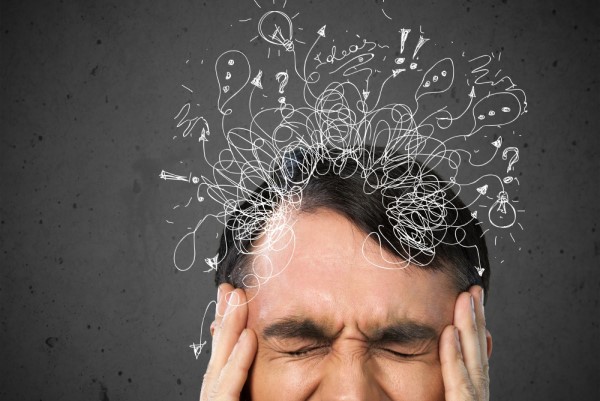Examples of Anxiety Disorders

Anxiety is one of the more common mental health concerns in the United States. If you are experiencing signs of anxiety, such as worry that cannot be controlled, heart palpitations, rapid breathing, or shaking hands, it is possible that these symptoms could be diagnosed as an anxiety disorder. Patients who are evaluated by psychiatrists for anxiety disorders are carefully interviewed regarding medical history, family psychiatric history, and personal mental health history to arrive at the correct diagnosis. Those who are diagnosed with anxiety are often treated using a combination of talk therapy and medication.
What separates anxiety from an anxiety disorder?
Though most people experience anxiety occasionally, this normal part of the human experience is not enough to warrant the diagnosis of an anxiety disorder. Rather, a disorder occurs when a patient's anxiety spirals out of control into obsessive thoughts and worries or when compulsions to relieve the anxiety become a priority. If symptoms of anxiety control a patient's daily life or are very difficult to regulate, that could be a sign of an anxiety disorder. It is important to seek help because anxiety can become worse over time if it is not treated.
What are examples of common anxiety disorders?
Patients may experience anxiety as part of other conditions such as bipolar disorder, ADHD, or schizophrenia, or the anxiety may be diagnosed as a standalone condition. Panic attacks can occur within the scope of another anxiety disorder, but if they are severe and frequent enough, they can warrant an additional diagnosis of panic disorder. A psychiatric patient may be diagnosed with the following four types of anxiety disorders.
Generalized anxiety disorder
GAD can be difficult to diagnose because many people with this type of anxiety disorder simply worry excessively about everyday situations. Concerned about the family's finances? Worried that the kids are not doing well in school? These are all examples of normal apprehensions. However, suppose worry about budgets consumes half the day or anxiety prompts speaking to the kids constantly about grades and pursuing weekly conferences with teachers. In that case, the person should consult a mental health professional about whether everyday worry has spiraled out of control.
Social anxiety disorder
SAD is a complex anxiety disorder that goes beyond what some people might term shyness. It can be thought of as a phobia of social situations with symptoms experienced on a daily basis. These circumstances might include being embarrassed in public, worrying about the judgments of others, or experiencing so much anxiety that the individual has trouble speaking in front of a group of people. Because it can greatly lower the quality of life, it is imperative that SAD be properly diagnosed and treated as early as possible.
Obsessive-compulsive disorder
OCD is generally classified as an anxiety disorder, but it is unique in the sense that it involves obsessions, such as fear of pathogens or illness, and compulsively performing actions, such as repeated hand washing, to relieve the anxiety. While OCD may be more complex to treat than other anxiety disorders, patients usually respond well to a combination of selective serotonin reuptake inhibitors, as well as cognitive behavioral therapy to address unwanted thoughts and compulsions.
Panic disorder
Patients may be diagnosed with panic disorder if they have suffered two or more panic attacks and constantly fear having another one. As a result, some people might change their everyday activities to lessen the chance of bringing on a panic attack. A panic attack can be defined as having a strong and sudden feeling of fear, along with physical symptoms such as rapid heartbeat, shaking, tightness in the throat, chest pain, nausea, a feeling of detachment, and dizziness, among others. Sometimes symptoms can be so severe that patients go to the emergency room thinking they might have a heart attack, especially if they have never experienced a panic attack before. In addition, certain events, such as a trauma or loss of a loved one, can trigger a panic disorder. Treatments include therapy, medication such as benzodiazepines, practicing mindfulness and meditation, and cutting back on alcohol and caffeine consumption.
Conclusion
Though it may not seem evident when a patient is experiencing intense anxiety, these symptoms can be managed with a combination of medication and counseling. If you are experiencing troubling thoughts, symptoms, or behaviors, be sure to obtain an evaluation by a licensed psychiatrist as soon as possible to develop a plan for relief. Always seek immediate medical attention if you are having any thoughts of harming yourself.
Get more information about anxiety disorders at https://www.hopetmsofny.com.
Check out what others are saying about our services on Yelp: Read our Yelp reviews.
Recent Posts
Mental health plays a critical role in overall well-being, influencing thought patterns, emotional stability, and behavior. For those experiencing persistent challenges, a formal diagnosis can provide clarity and a structured approach to healing. With guidance from a psychiatrist, individuals can better understand their condition and begin a path toward long-term mental wellness.A mental health diagnosis…
Ketamine therapy employs a medication long used in anesthesia to treat depression and other mental health disorders. Traditional treatments for these disorders do not always work, and not everyone can tolerate the side effects of traditional drugs. Even though it is newer, psychiatrists are observing that ketamine is already showing promise in the treatment of…
Insomnia disrupts sleep patterns and negatively affects overall health, leading to fatigue, difficulty concentrating, and emotional distress. This condition can result from chronic stress, anxiety, depression, or medical issues that interfere with the body's natural sleep cycle. A psychiatrist can help diagnose and address insomnia, providing tailored treatments focusing on mental and physical well-being.Insomnia is…
Relationship obsessive-compulsive disorder (ROCD) is a distinct subtype of OCD that can cause persistent doubts and distressing thoughts about romantic relationships. OCD treatment can help individuals manage their intrusive thoughts and compulsive behaviors associated with ROCD. Understanding and having access to the available treatment options can help individuals regain control over their thoughts and the…


